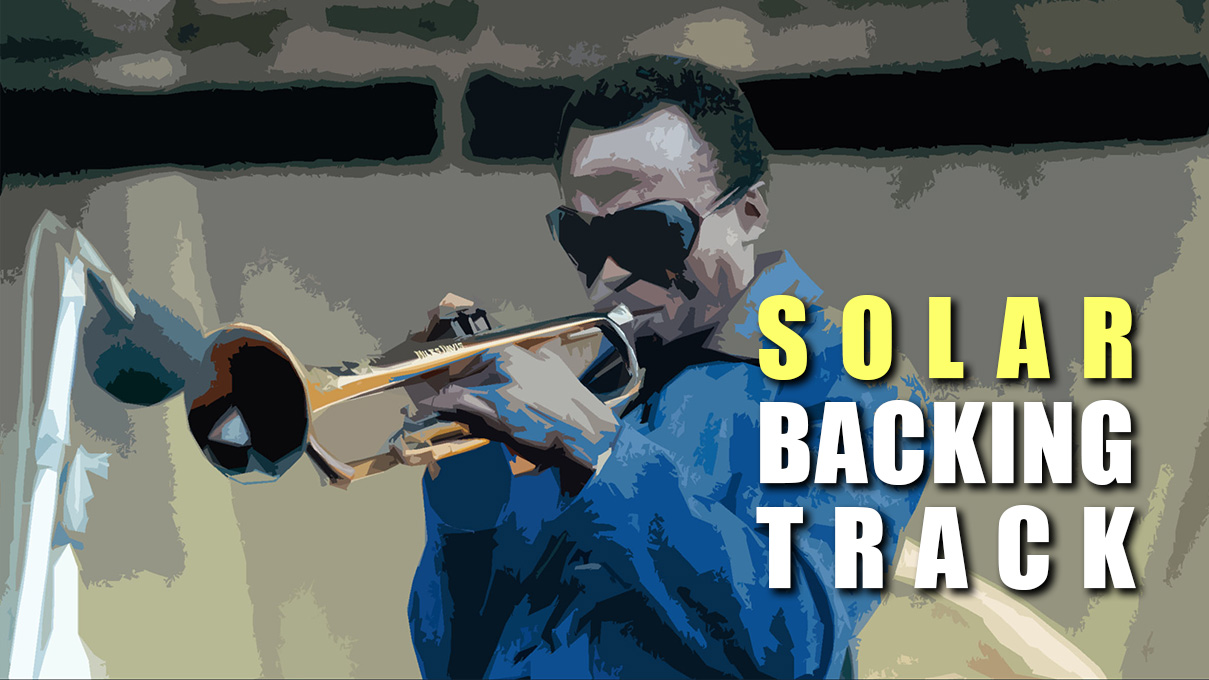Miles Davis:
We've selected 9 Backing Tracks for you to practice!
This month we will be 31 years old without Miles Davis, he died on September 28, 1991. It is very difficult to imagine what modern jazz would be like without the precious contribution of this great American music icon revered by instrumentalists around the world.
We have separated 9 backing songs. tracks of important compositions of this great master so that you can practice your knowledge of improvisation.
All Blues
"All Blues" was composed by trumpeter Miles Davis who was part of his influential album "Kind of Blue" released in 1959. This album had the participation of Julian "Cannonball" Adderley (Alto Saxophone) John Coltrane (Tenor Saxophone) Bill Evans ( Piano), Paul Chambers (Double Bass) and Jimmy Cobb (Drums).
It is a blues of 12 bars in 6/8 in the key of G major. It is important to be aware of the changes made in harmony in relation to the traditional blues, in the tenth bar we have the Eb7 # 9 chord followed by the D7 # 9 instead of the expected C7 commonly used. Take advantage of this moment to apply your knowledge and let your creativity flow.
This jazz standard has already been played by great artists like Chet Baker, Kenny Burrell, Pat Martino, George Benson, Howard Roberts, Herbie Hancock, Buddy Rich, Frank Morgan, Ron Carter, Peter Frampton, Freddie Hubbard, Wayne Shorter, Michael Brecker, Joe Lovano and many others.
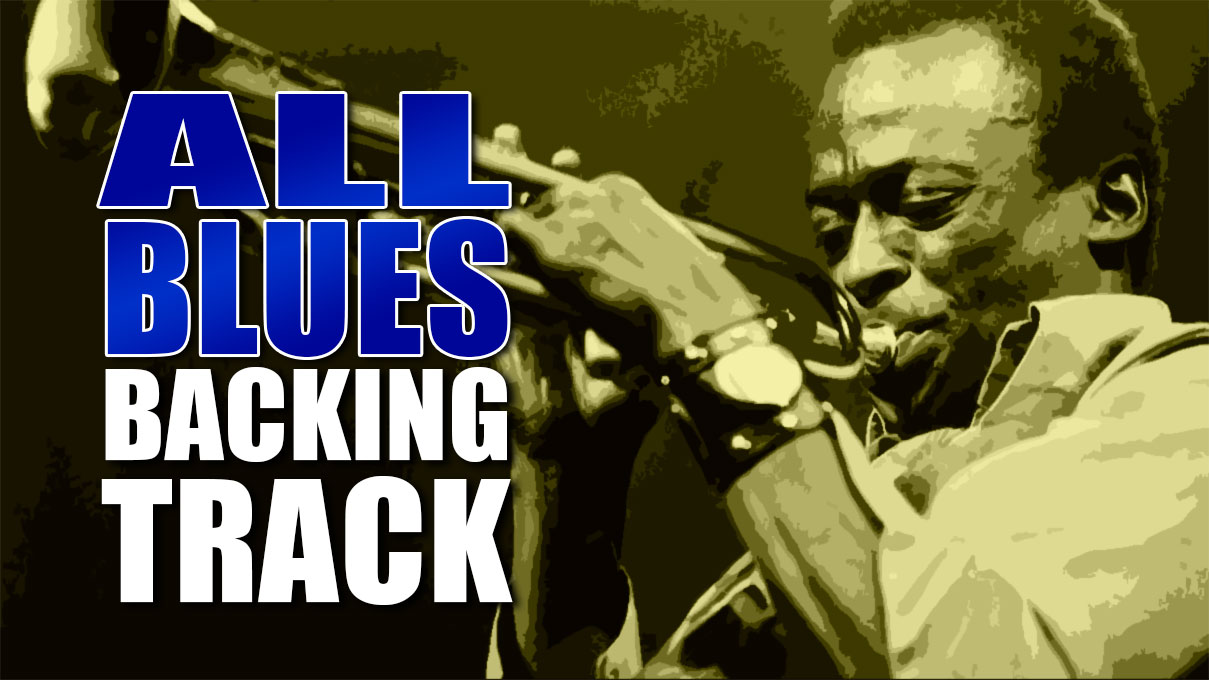
So What
"So What" is a Miles Davis composition released in 1959 on the album "Kind of Blue". It is a modal jazz in AABA format with 32 bars. This same chord structure was later used by John Coltrane on "Impressions".
This song has also been performed by Marcus Miller, Larry Carlton, Grant Green, Barney Kessel, Herbie Hancock, Arturo Sandoval, Michel Petrucciani, Ron Carter, Jerry Garcia, Peter Sprague, Bireli Lagrène, Sylvain Luc, Jan Verwey and many others.
This jazz standard can be found in "Real Book vol.1" on page 399 and "Real Book vol.6" on page 364.
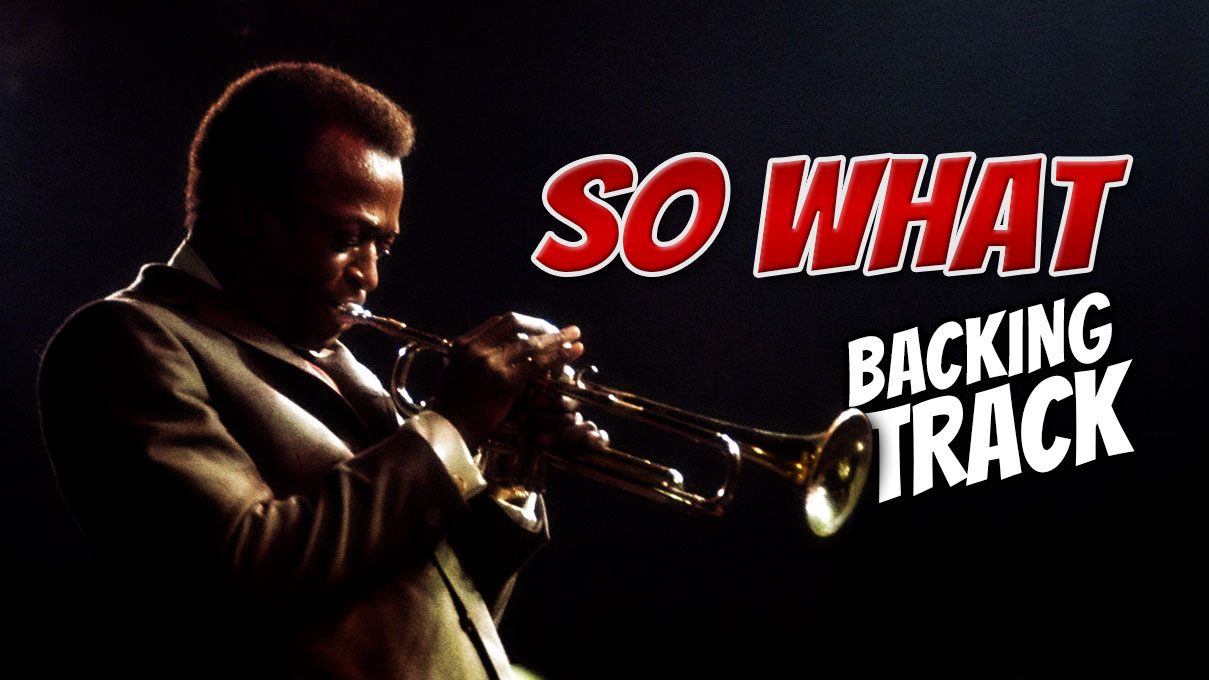
Blue in Green
"Blue in Green" is a song released in 1959 on Trumpeter Miles Davis' album "Kind of Blue", it is speculated that the song is actually authored by Bill Evans, although it is credited only to Miles most of the time.
This theme has been performed by great instrumentalists such as Bill Evans, John Coltrane, Paul Chambers, Scott LaFaro, Chet Baker, Lee Ritenour, Larry Coryell, John McLaughlin, Archie Shepp, Gary Burton, Stephane Grappelli and many others.
This jazz standard can be found in Real Book vol.1 and vol.6, with some differences between these two scores. For this work we chose the transcribed in vol.6.
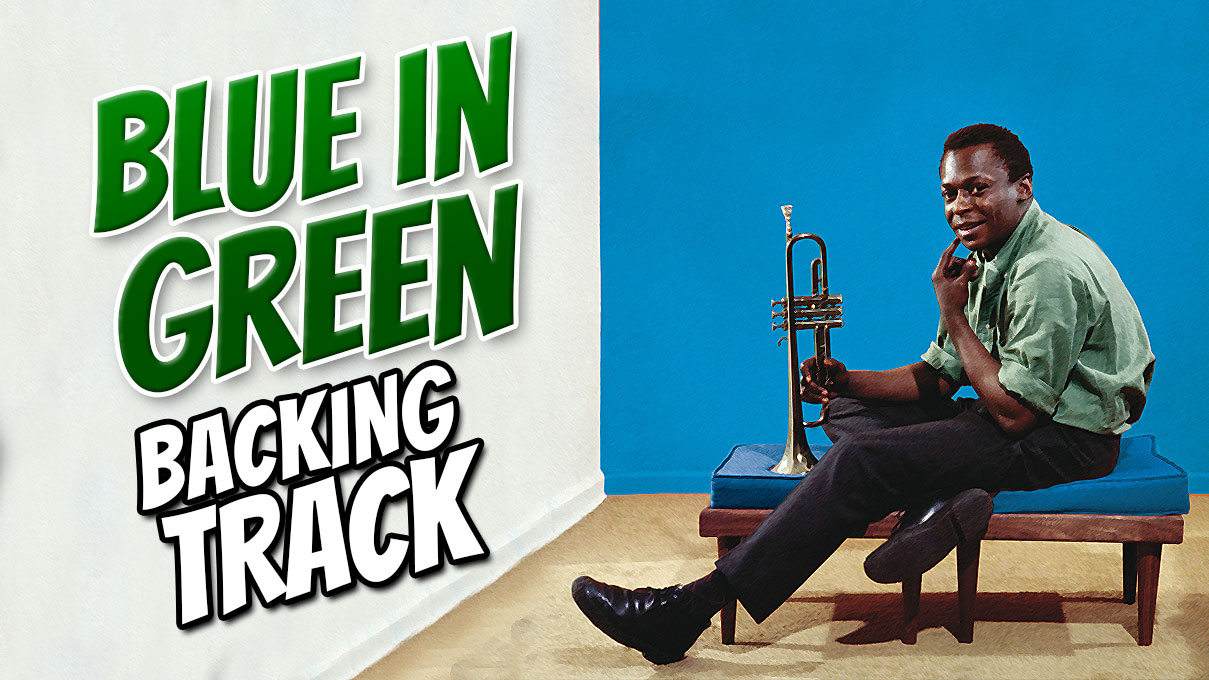
Boplicity
Boplicity (Be Bop Lives) is a jazz theme composed in 1957 by Miles Davis and Gil Evans for the album Birth of the Cool. It has 32 measures in the form AABA in the key of F major. Pay attention to the Fmaj7 chords that appear in the last measure of each "A" part, the melody presents the note B showing that this is a #11 chord, so when improvising it is interesting to use the Lydian mode of the major scale.
This song can be considered a jazz standard and has been performed by great instrumentalists, including Charlie Parker, Gerry Mulligan, Art Farmer, Lee Konitz, Kurt Rosenwinkel, Dave Liebman, Shawn Graham and many others.
This jazz standard can be found in “Real Book vol.1” on page 60 and “Real Book vol.6” on page 58.
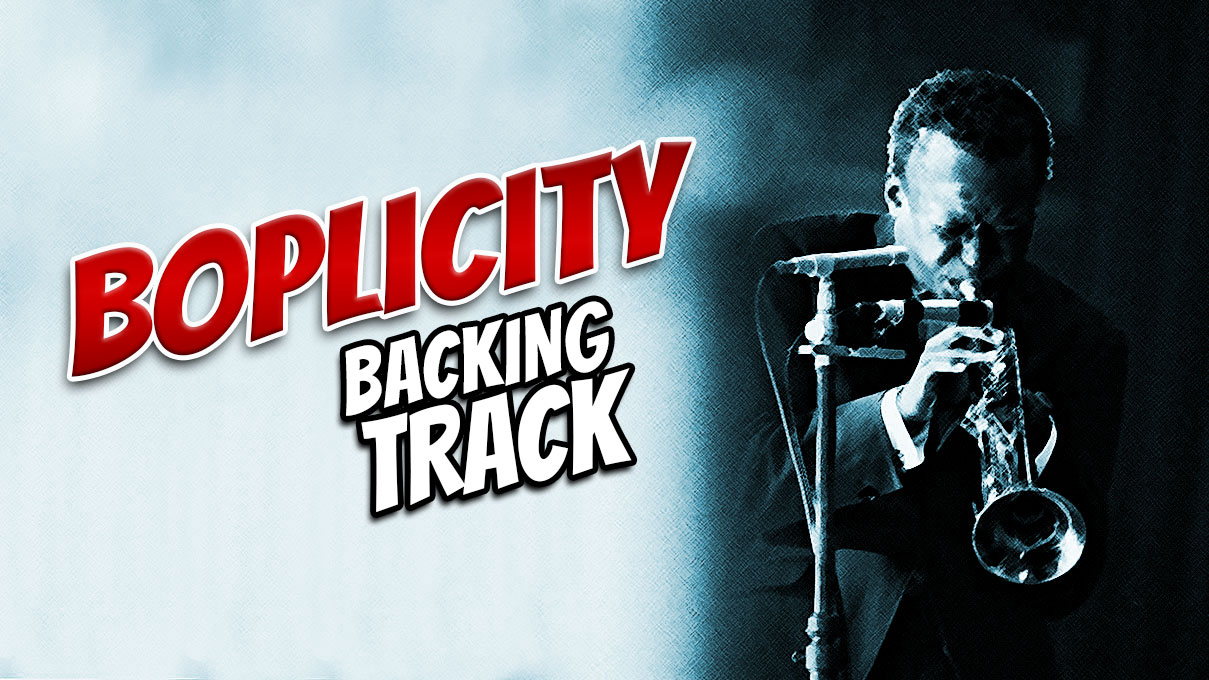
Milestones
Milestone is a Miles Davis composition released in 1958 on the album of the same name. This song was released under the name "Miles" but was later changed to "Milestone". This album, as well as "Kind of Blue" (1959), is extremely important for the history of jazz, in addition to Miles on the trumpet with the participation of John Coltrane (tenor sax), Cannonball Adderley (alto sax), Red Garland (piano), Paul Chambers (bass), Philly Joe Jones (drums).
This theme has already been played by great instrumentalists like Herbie Hancock, Ron Carter, Wayne Shorter, Dexter Gordon, Joshua Redman, Joe Henderson, Bill Evans, Scott LaFaro, Ray Bryant, Tommy Flanagan, Chet Baker and many others.
This jazz standard can be found in “Real Book vol.3” on page 193.
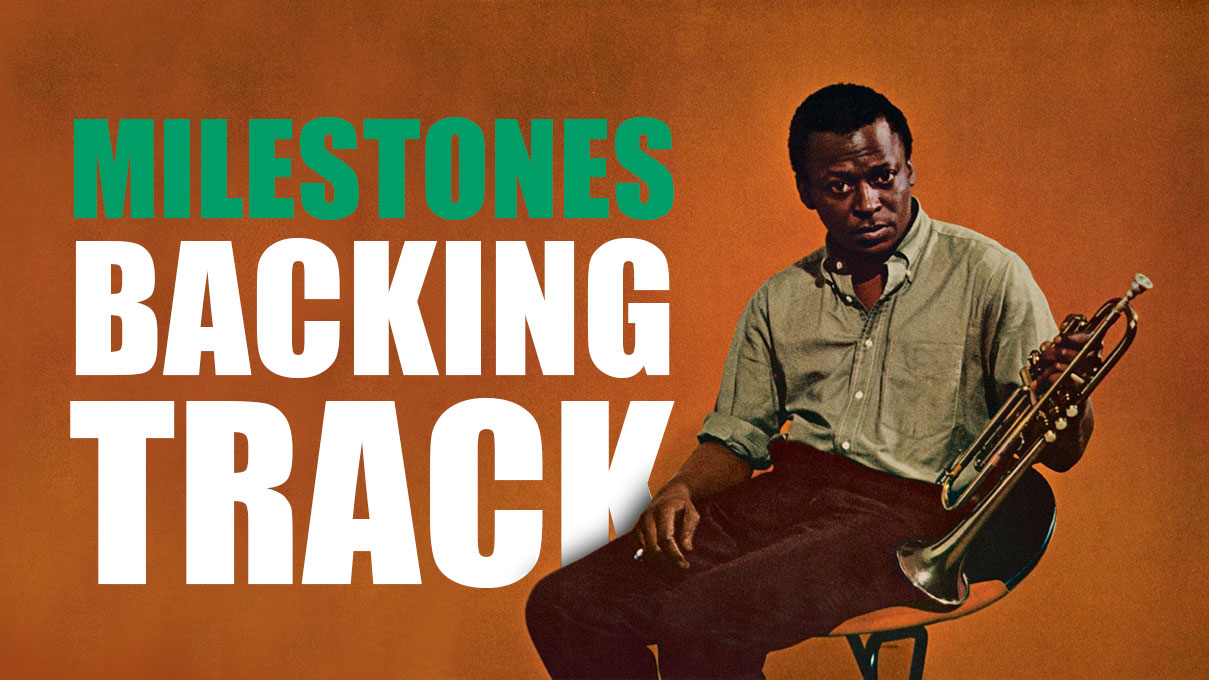
Donna Lee
Donna Lee was composed by Miles Davis in 1947, being his first recorded composition, the authorship of this song is often wrongly attributed to saxophonist Charlie Parker. It was written in A flat and is based on the chord progression of traditional jazz music, “Back Home Again in Indiana”.
It is a bebop song, a style that revolutionized post-war American music and dramatically changed the way jazz was played and enjoyed.
In this Backing Track we put a trio composed of drums, acoustic bass and guitar, we kept the pace at 200bpm so that the student can play this piece with tranquility without it losing its footing quite accelerated.
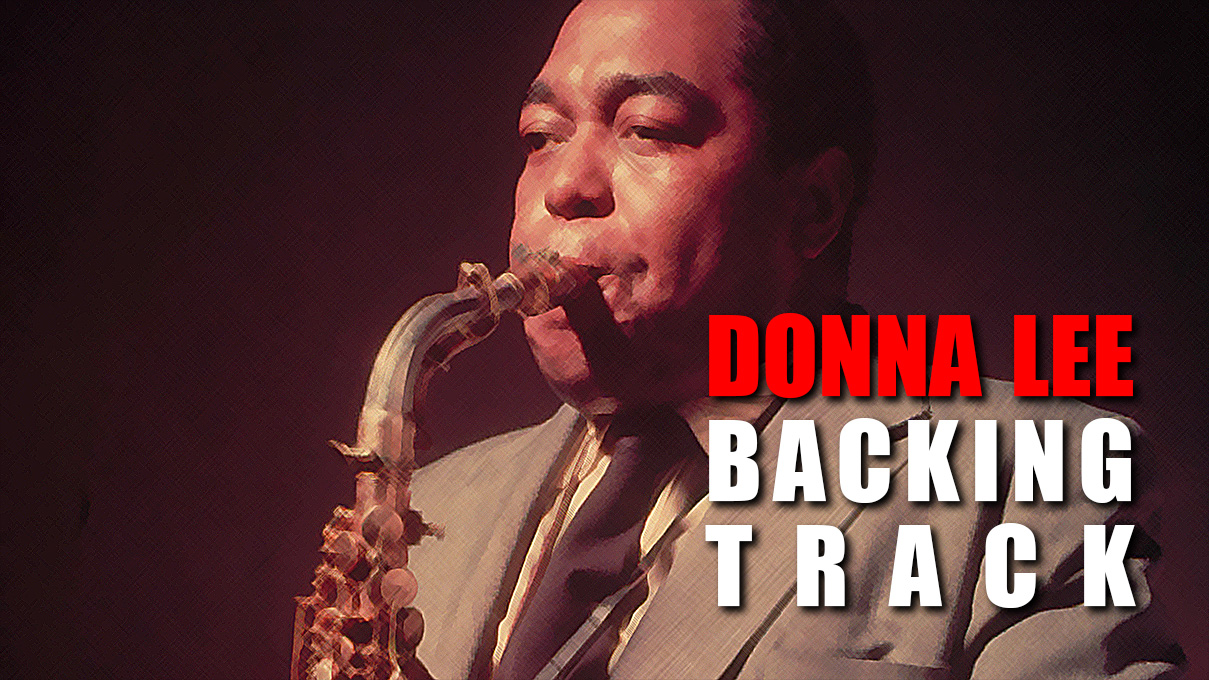
Freddie Freeloader
"Freddie Freeloader" is a 12-bar blues composed in 1959 by trumpeter Miles Davis. This composition has a change in the final bars in relation to the traditional blues, Miles replaced the expected Bb7 by Ab7, so this is a point that deserves the attention of the improviser.
In the original recording Miles cast a group of notables:
Cannonball Adderley - Alto Saxophone
John Coltrane - Tenor Saxophone
Wynton Kelly - Piano
Paul Chambers - Double Bass
Jimmy Cobb - Drums
This theme has already been played by other great instrumentalists like Wes Montgomery, Dexter Gordon, Bill Evans, Stanley Jordan, Monty Alexander, Mark Whitfield, Ray Brown and many others.

Four
"Four" is a theme that became well known in 1954 through its recording by the Miles Davis quartet. Although its authorship is attributed to Miles, there is controversy regarding this, as saxophonist Eddie "Cleanhead" Vinson claimed ownership of this song.
This standard has already been played by jazz greats like Stan Getz, Sonny Rollins, Joe Henderson, Chet Baker, Keith Jarrett, Dexter Gordon, Sonny Stitt, George Benson and many others.
This backing track consists of drums, double bass and piano. The tempo is at 160bpm.
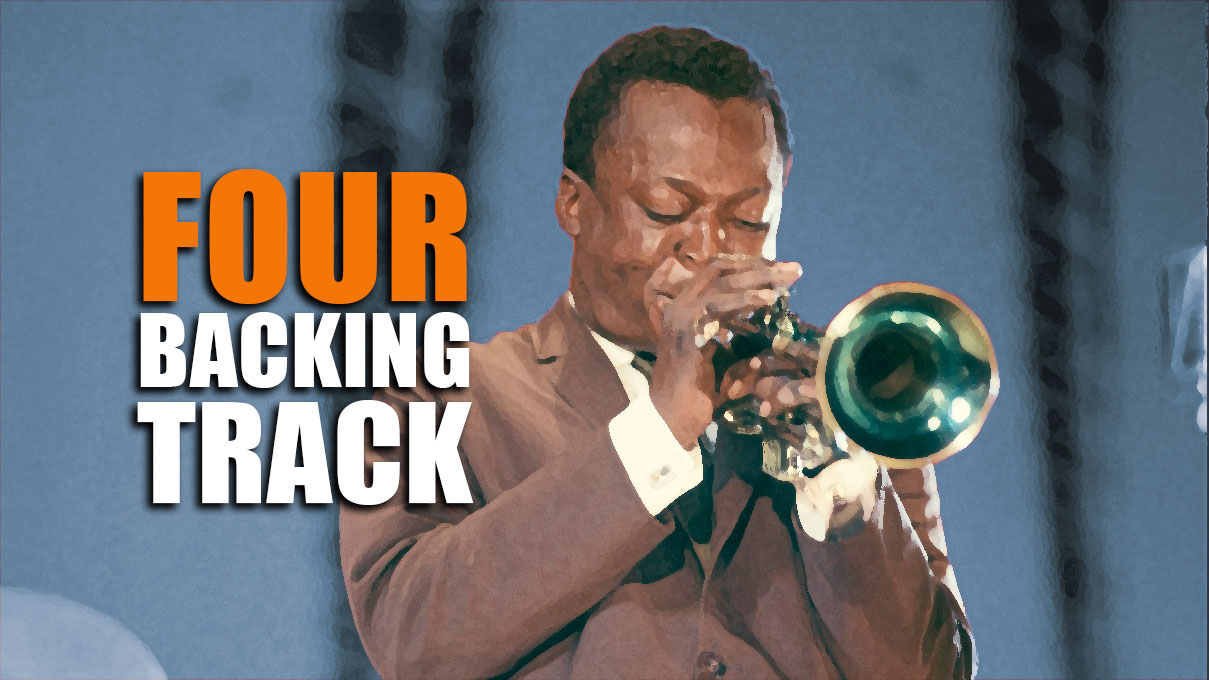
Solar
“Solar” is a 12-bar composition written by Chuck Wayne, but Miles Davis is the copyright holder. Debuted on the 1954 "Walkin'" album, it is considered a modern jazz standard.
Here the improviser will encounter several challenges with modulations and a different arrangement for each cadence II-V-I that appears in the song.
Know the chords of this song well, map the scales, triads and tetrads for each of the chords, for sure in a short time you will get a very fluid improvisation on this theme.
